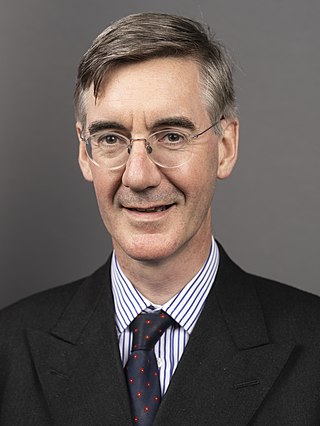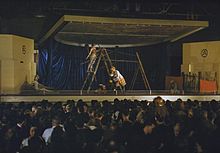
The Royal Society for the Encouragement of Arts, Manufactures and Commerce, commonly known as the Royal Society of Arts (RSA), is a London-based organisation.

English Heritage is a charity that manages over 400 historic monuments, buildings and places. These include prehistoric sites, medieval castles, Roman forts and country houses.

The Department for Culture, Media and Sport (DCMS) is a ministerial department of the Government of the United Kingdom. It holds the responsibility for culture and sport in England, and some aspects of the media throughout the UK, such as broadcasting. Its main offices are at 100 Parliament Street, occupying part of the building known as Government Offices Great George Street.

Arts Council England is an arm's length non-departmental public body of the Department for Culture, Media and Sport. It is also a registered charity. It was formed in 1994 when the Arts Council of Great Britain was divided into three separate bodies for England, Scotland and Wales. The arts funding system in England underwent considerable reorganisation in 2002 when all of the regional arts boards were subsumed into Arts Council England and became regional offices of the national organisation.

William Rees-Mogg, Baron Rees-Mogg was a British newspaper journalist who was Editor of The Times from 1967 to 1981. In the late 1970s, he served as High Sheriff of Somerset, and in the 1980s was Chairman of the Arts Council of Great Britain and Vice-Chairman of the BBC's Board of Governors. He was the father of the politicians Sir Jacob and Annunziata Rees-Mogg.

Arnolfini is an international arts centre and gallery in Bristol, England. It has a programme of contemporary art exhibitions, artist's performance, music and dance events, poetry and book readings, talks, lectures and cinema. There is also a specialist art bookshop and a café bar. Educational activities are undertaken and experimental digital media work supported by online resources. Festivals are hosted by the gallery.

The National Lottery Community Fund, legally named the Big Lottery Fund, is a non-departmental public body responsible for distributing funds raised by the National Lottery for "good causes".
The UK Film Council (UKFC) was a non-departmental public body set up in 2000 to develop and promote the film industry in the UK. It was constituted as a private company limited by guarantee, owned by the Secretary of State for Culture, Media and Sport, and governed by a board of 15 directors. It was funded from various sources including The National Lottery. John Woodward was the Chief Executive Officer of the UKFC.

The Scottish Arts Council was a Scottish public body responsible for the funding, development and promotion of the arts in Scotland. The Council primarily distributed funding from the Scottish Government as well as National Lottery funds received via the Department for Culture, Media and Sport.

The Arts Council of Wales is a Welsh Government-sponsored body, responsible for funding and developing the arts in Wales.

The Arts Council of Northern Ireland is the lead development agency for the arts in Northern Ireland. It was founded in 1964, as a successor to the Committee for the Encouragement of Music and the Arts (CEMA).

Sir Jacob William Rees-Mogg is a British politician and member of the Conservative Party serving as the Member of Parliament (MP) for North East Somerset since 2010. He served as Leader of the House of Commons and Lord President of the Council from 2019 to 2022, Minister of State for Brexit Opportunities and Government Efficiency from February to September 2022 and Secretary of State for Business, Energy and Industrial Strategy from September to October 2022. Rees-Mogg previously chaired the eurosceptic European Research Group (ERG) from 2018 to 2019 and has been associated with socially conservative views.
Sir William Emrys Williams, CBE was editor-in-chief of Penguin Books from 1936 to 1965 and an educationalist and powerhouse of popular education in the 20th century. A close collaborator with Allen Lane, Penguin's founder, for over thirty years, Williams was the cultural force behind Penguin Books' success and was the creator of the Pelican imprint.
Regional Arts Australia is the national peak body for regional arts organisations throughout Australia. Formed in 1966 as the Arts Council of Australia, it is a federation of the peak non-metropolitan community arts organisations in each of the Australian states and territories. It advocates better recognition and support for the regional, rural and remote arts sector in Australia. It initiates and manages projects to support regional artists, artsworkers and communities in arts practice, arts promotion and audience development in the regional and rural sectors.

Making Music is a UK membership organisation for leisure-time music groups of all musical genres, representing over 200,000 musicians and promoters of all levels and experience. Making Music provides them with practical services, guidance, artistic development opportunities and a collective voice for advocacy.

Cholwell is a historic hamlet and manor in the parish of Cameley, Somerset, England. The manor house, Cholwell House, was rebuilt in 1855 by William Rees-Mogg (1815-1909). It is a Grade II listed building.
For the artist with a similar name see Dorothy Elizabeth Bradford.

Unboxed: Creativity in the UK, previously known as Festival UK* 2022 was a national celebration in the United Kingdom first announced in 2018 by the Conservative government following the Brexit referendum. The festival events took place from March to November 2022, at 107 locations across the UK, at a reported cost of £120 million. Organisers announced an audience of 18 million and described the festival as "a major investment in areas across the UK that are often underserved by cultural investment."
Sybil Eaton was a British violinist and violin teacher. Eaton was a performer and coordinator for the Music Travellers, a wartime initiative created by the Council for the Encouragement of Music and the Arts.















